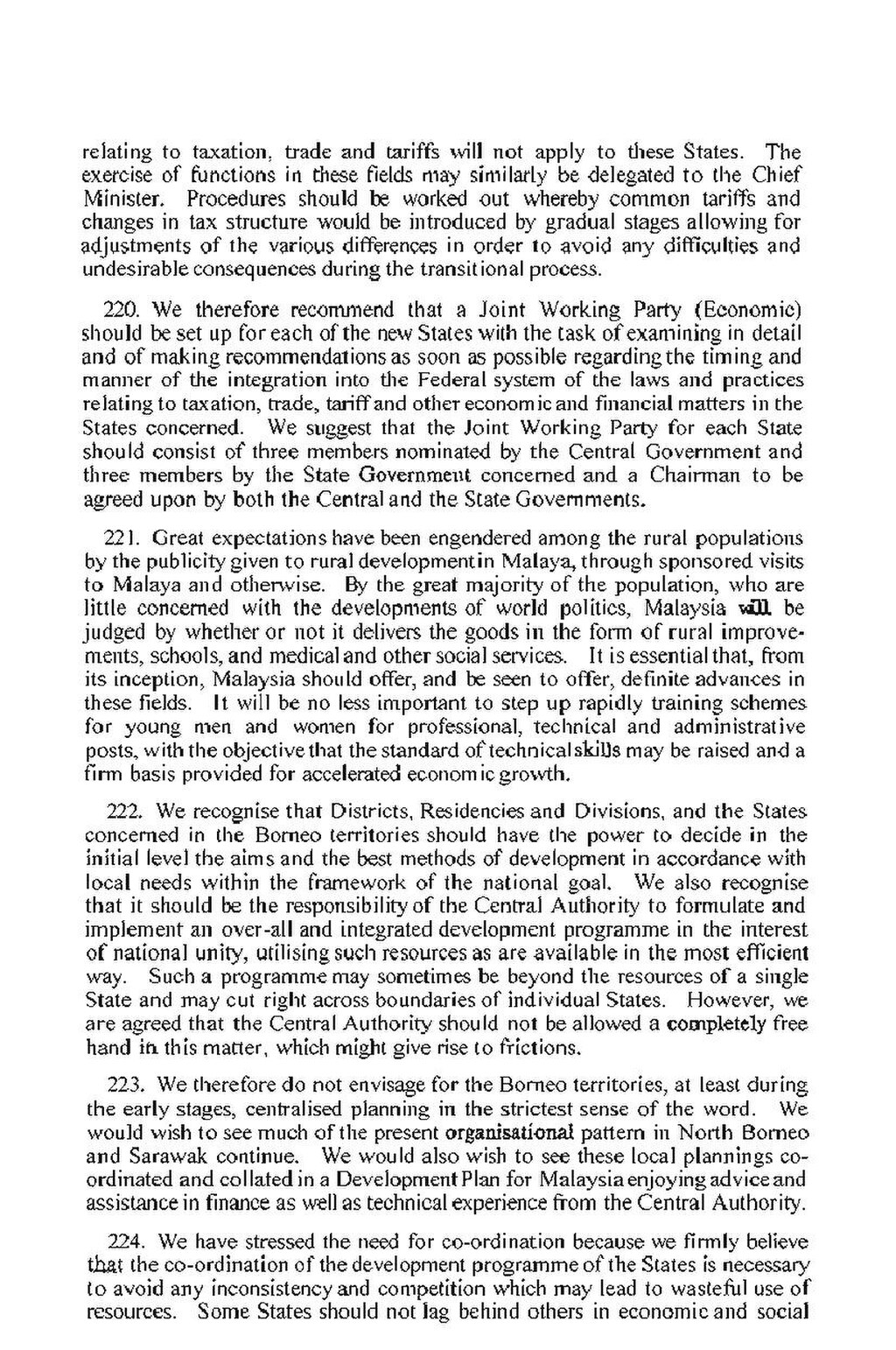relating to taxation, trade and tariffs will not apply to these States. The exercise of functions in these fields may similarly be delegated to the Chief Minister. Procedures should be worked out whereby common tariffs and changes in tax structure would be introduced by gradual stages allowing for adjustments of the various differences in order to avoid any difficulties and undesirable consequences during the transitional process.
220. We therefore recommend that a Joint Working Party (Economic) should be set up for each of the new States with the task of examining in detail and of making recommendations as soon as possible regarding the timing and manner of the integration into the Federal system of the laws and practices relating to taxation, trade, tariff and other economic and financial matters in the States concerned. We suggest that the Joint Working Party for each State should consist of three members nominated by the Central Government and three members by the State Government concerned and a Chairman to be agreed upon by both the Central and the State Governments.
221. Great expectations have been engendered among the rural populations by the publicity given to rural development in Malaya, through sponsored visits to Malaya and otherwise. By the great majority of the population, who are little concerned with the developments of world politics, Malaysia will be judged by whether or not it delivers the goods in the form of rural improve- ments, schools, and medical and other social services. It is essential that, from its inception, Malaysia should offer, and be seen to offer, definite advances in these fields. It will be no less important to step up rapidly training schemes for young men and women for professional, technical and administrative posts, with the objective that the standard of technical skills may be raised and a firm basis provided for accelerated economic growth.
222. We recognise that Districts, Residencies and Divisions, and the States concerned in the Borneo territories should have the power to decide in the initial level the aims and the best methods of development in accordance with local needs within the framework of the national goal. We also recognise that it should be the responsibility of the Central Authority to formulate and implement an over-all and integrated development programme in the interest of national unity, utilising such resources as are available in the most efficient way. Such a programme may sometimes be beyond the resources of a single State and may cut right across boundaries of individual States. However, we are agreed that the Central Authority should not be allowed a completely free hand in this matter, which might give rise to frictions.
223. We therefore do not envisage for the Borneo territories, at least during the early stages, centralised planning in the strictest sense of the word. We would wish to see much of the present organisational pattern in North Borneo and Sarawak continue. We would also wish to see these local plannings coordinated and collated in a Development Plan for Malaysia enjoying advice and assistance in finance as well as technical experience from the Central Authority.
224. We have stressed the need for co-ordination because we firmly believe that the co-ordination of the development programme of the States is necessary to avoid any inconsistency and competition which may lead to wasteful use of resources. Some States should not lag behind others in economic and social
